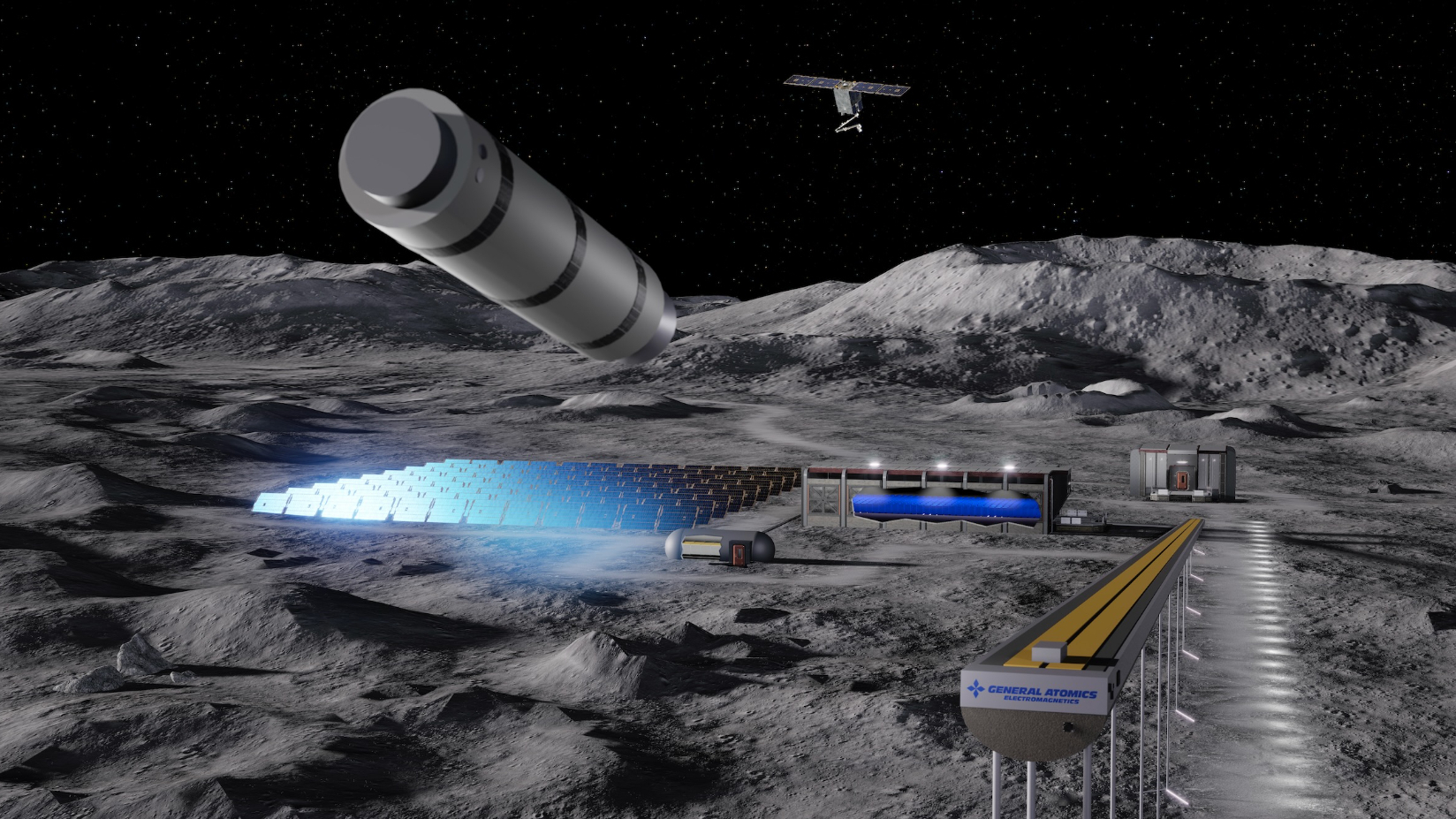NASA Delays First Post-Columbia Launch
Breaking space news, the latest updates on rocket launches, skywatching events and more!
You are now subscribed
Your newsletter sign-up was successful
Want to add more newsletters?

Delivered daily
Daily Newsletter
Breaking space news, the latest updates on rocket launches, skywatching events and more!

Once a month
Watch This Space
Sign up to our monthly entertainment newsletter to keep up with all our coverage of the latest sci-fi and space movies, tv shows, games and books.

Once a week
Night Sky This Week
Discover this week's must-see night sky events, moon phases, and stunning astrophotos. Sign up for our skywatching newsletter and explore the universe with us!

Twice a month
Strange New Words
Space.com's Sci-Fi Reader's Club. Read a sci-fi short story every month and join a virtual community of fellow science fiction fans!
NASA has pushed back the date forits first space shuttle launch since the Columbia tragedy, delaying the flightone week to allow more time to complete much-needed paperwork and analyses, thespace agency said Wednesday.
The Discovery orbiter and itsSTS-114 crew will launch no-earlier than May 22, shuttle program manager BillParsons said during a teleconference with reporters.
Previously, NASA officials had setthe opening of Discovery's launch window at May 15.
"The May 15 launch date was just atarget and we always knew that we would have to revisit it," Parsons said,adding that the shuttle will be launched when it is ready and not on adeadline.
The decision to rescheduleDiscovery's launch window was already under discussion going into the mission'sdesign certification review meeting Tuesday, shuttle officials said
"It was obvious that ... there wasstill a certain amount of analysis that needed to be done, of paperwork thatneeded to be done," Parsons said.
The launch delay will allow time forNASA to complete a final debris verification review for Discovery's flight nextweek and perform additional launch load analyses for the shuttle's new orbitalboom - a sensor-laden system that the STS-114 crew will use to scan theirprotective thermal protection tiles for damage.
Breaking space news, the latest updates on rocket launches, skywatching events and more!
Parsons said the additional timewill also allow shuttle officials to deliver paperwork to the Stafford-CoveyReturn to Flight Task Force, an independent panel evaluating the space agency'slaunch preparations. The task force postponed a late-March meeting due to theneed for paperwork.
"We're hoping to present to them onthe 4th, 5th and 6th of May," he said, addingthat a flight readiness review meeting is scheduled for May 10.
A long effort
NASA has spent more than two yearsredesigning orbiter components and developing new tools and procedures toenhance space shuttle safety. Discovery's STS-114 mission, a test flight, isNASA's first opportunity to shakedown those modifications.
Among those changes - and one reasonfor Discovery's initial May 15 to June 3 launch window - is a flight rulecalling for a daylight launch and well-lit conditions external fuel tankseparation.
Discovery only has one, five-minuteperiod in which to lift off during each launch window day, though shuttleofficials are confident that they will step up to the task.
Wayne Hale, NASA's deputy shuttleprogram manger, said that all of Discovery's lighting restrictions will beaided by a new plan to reboostthe space station in its orbit.
"It's very fortunate that theorbital mechanics worked out that way," Hale said of the station's reboost, duringwhich it will burn propellant. "It not only sets us up for the launch window,but also prepares the station for a Progress cargo rendezvous in June."
There is also an option of extending Discovery's launch window by a few days should it be needed, though the lighting conditions will gradually get deteriorate after June 3, shuttle officials said.
"We just know that it is a possibility and that we could talk about," Parsons said, adding that currently the launch window cutoff is set at June 3.
More time for training
Discovery's launch delay will givemission managers time to conduct one last simulation of the spaceflight andhelp lighten some of the training requirements for the STS-114 crew.
"Their [training]schedule was trending toward the higher side of what we allow," Hale said."Over the next few days the crew is going to take advantage of that extra timeand get rest for launch."
A rehearsal of Discovery'slaunch countdown is slated for May 4.
- Fixing NASA: Complete Coverage of Space Shuttle Return to Flight

Tariq is the award-winning Editor-in-Chief of Space.com and joined the team in 2001. He covers human spaceflight, as well as skywatching and entertainment. He became Space.com's Editor-in-Chief in 2019. Before joining Space.com, Tariq was a staff reporter for The Los Angeles Times covering education and city beats in La Habra, Fullerton and Huntington Beach. He's a recipient of the 2022 Harry Kolcum Award for excellence in space reporting and the 2025 Space Pioneer Award from the National Space Society. He is an Eagle Scout and Space Camp alum with journalism degrees from the USC and NYU. You can find Tariq at Space.com and as the co-host to the This Week In Space podcast on the TWiT network. To see his latest project, you can follow Tariq on Twitter @tariqjmalik.
